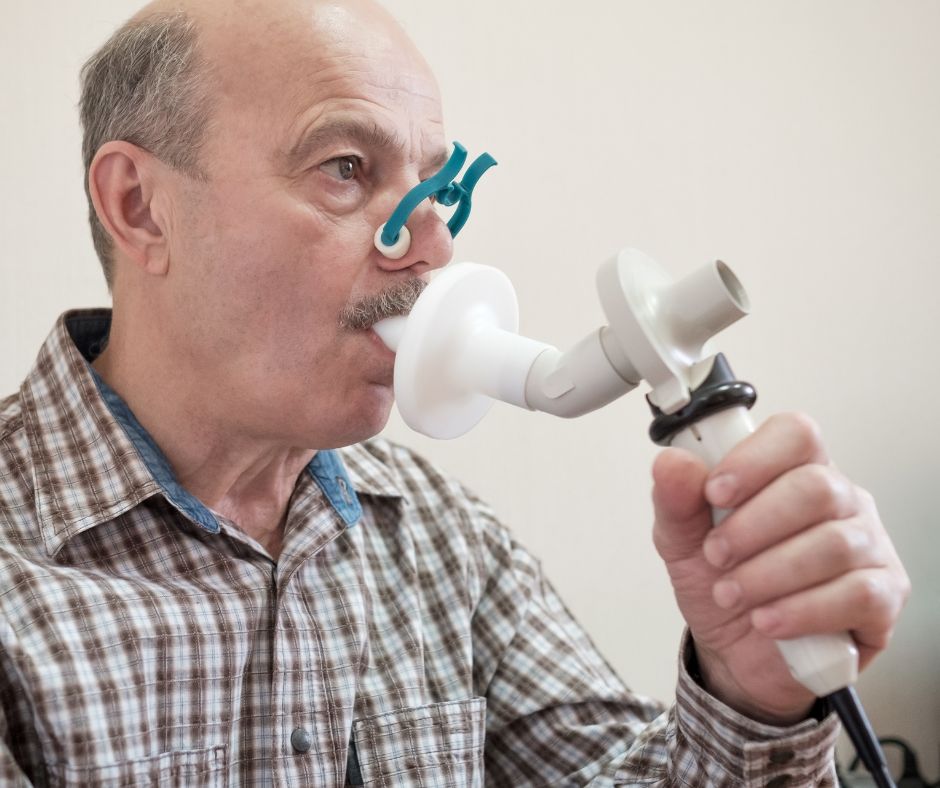Your lungs are one of the most vital organs in your body, and staying healthy means keeping them at peak performance. Have you ever stopped to think about how well your lungs are performing their day-to-day duties of keeping you breathing? Well, there’s a scientifically smart way to check up on them called a Spirometry Test. It’s not the latest tech gadget or a complex procedure, but a straightforward test with profound implications for understanding your lung health. So, grab your inhalers, and let’s dive into the breezy world of Spirometry.
What is a Spirometry Test?
Spirometry is the gold standard for measuring lung function. It involves breathing into a tube attached to a spirometer, a machine that measures your lung capacity and air flow rate. Think of it as the lung’s personal treadmill test that measures how much air you can inhale and exhale, as well as how quickly you can do it. It’s the most common type of breathing test and acts as a sort of Fitbit for your lungs, providing vital statistics that help your healthcare team understand your pulmonary prowess.
Why is it done?
A Spirometry Test is a critical first step in diagnosing lung conditions like asthma, chronic obstructive pulmonary disease (COPD), and other respiratory issues that might be affecting your quality of life. It’s also used periodically to assess the severity of known conditions and check the effectiveness of certain treatment options. Basically, it’s your lung’s annual performance review that empowers you with information to take proactive steps toward better health.
What To Expect During a Spirometry Test
During the test, you’ll likely be seated and asked to place a clip on your nose to ensure all air leaves through your mouth. You’ll be handed a plastic mouthpiece attached to the spirometry machine. To perform the test, the technician will guide you to take a deep breath in, then exhale as hard and as fast as you can into the mouthpiece for several seconds.
The test will be repeated at least three times to get the most accurate and consistent results. After the initial round of testing, you may be given a bronchodilator to open your airways and then asked to repeat the process after 15 minutes. Your doctor can then compare the results to determine if your breathing improved with medication.
Depending on your results and the number of rounds performed, the test can take between 15 and 45 minutes. It’s normal to feel a bit dizzy or tired after the test, but these sensations should pass quickly.
How To Prepare for a Spirometry Test
Preparing for a spirometry test is as important as the test itself. Here’s what you need to know to ensure everything goes smoothly:
- Dress for Success: Wear loose, comfortable clothing that doesn’t restrict your breathing. You want your lungs to perform without any external pressures, literally.
- Meal Timing: Avoid large meals before the test. A full stomach can impede your ability to take deep breaths, skewing the results.
- Don’t Smoke. Avoid smoking for at least 6 hours prior to testing. (Better yet, ask your doctor for resources and support on how to quit.)
- Ask about Medications. Your doctor may ask you to avoid taking certain medications, such as short-acting inhalers or inhaled breathing medications, on test day.
- Best Practices: You’ll be coached on how to breathe correctly to get the best results. Following the instructions closely is crucial for accuracy.
What Does a Spirometry Test Reveal?
A spirometry test measures two key values: Forced Vital Capacity (FCV), or the highest amount of air you can exhale forcefully and completely after taking a deep breath; and Forced Expiratory Volume (FEV), or the amount of air you can blow out within one second.
The insights gained from a spirometry test are invaluable. They provide a clear picture of your lung function by comparing your results to expected values based on age, sex, height, and ethnicity. This comparison can indicate whether your lung function is within a healthy range or if there are signs of a lung condition that requires attention. A normal reading is at least 80% or higher than the average for your demographic.
Breathe Easy with the Right Support
Concerned about your lung health or managing a chronic lung condition? America’s Best Care Plus is here to support your respiratory needs. Our comprehensive respiratory supply program is designed to keep you breathing well and living life to its fullest. Visit us online to learn more and take the next step towards better lung health.

